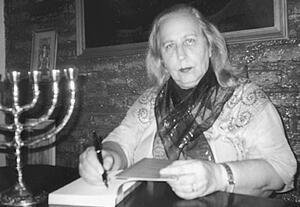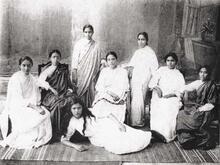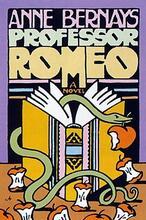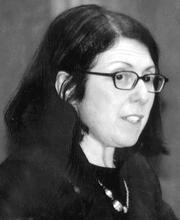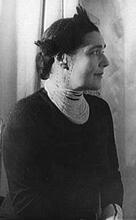Sara Riwka B’raz Erlich
Sara Riwka B’raz Erlich was a Brazilian-Jewish author and scientist whose vivid writing drew inspiration from her work as a psychiatrist, her Jewish heritage, and her experiences in South America and Israel. In 1958 Erlich graduated with honors from the School of Medicine in Pernambuco. She went on to co-found the Northeastern Center of Rehabilitation for Disturbed and Neglected Youngsters, helping underprivileged children with mental disorders. In the 1950s she published Histórias que precisavam ser contadas (Stories that Had to Be Told) based on her psychiatric work. In 1978 she published No tempo das acácias (The Time of the Acacias) about her experiences in the diaspora, interweaving Brazilian culture with Eastern European influences. She continued to write memoirs, stories, poems, and essays in Portuguese until the early twenty-first century.
Family and Early Life
While she attended the town’s Jewish primary school, Erlich’s formative years were framed by a non-Jewish environment filled with expressions of the local folklore, popular music, children’s rhymes, and Catholic public activities. Together with her special feelings for the geographical surroundings, these elements became part of Erlich’s literary personality as conveyed in her prose works of a semi-biographical and semi-fictional nature. These emphasize lively aspects of her Jewish experience within a non-Jewish atmosphere, both of indelible influence on her being. A further factor, added to her bicultural associations, was her experiences in Israel, where she lived for a period of time as an adult. Thus Erlich’s writings reflect her diversified associations in her native Brazil, which she extended to her experiences in Israel, which in turn were followed by a renewed sense of belonging to a multicultural and multi-spiritual world once she returned to her hometown.
Sara Riwka Erlich was born in 1935, in Recife, Pernambuco, the site of what is possibly the first synagogue built in the New World (Kahal Zur Israel, 1636), where Hispanic Jews fleeing the Inquisition sought refuge (during the Dutch period, in the northeast of the country, 1620–1654). Her parents, Israel (1912–1979) and Fruma (B’raz) Erlich (1908–1974), immigrated to Brazil from Poland in 1929. Her father went first, followed some time later by his wife and their two little sons. Sara’s mother brought along a few of the family heirlooms, a samovar, and some copper pots and pans. Despite their apparent triviality, these utensils would play a significant role in the author’s written recollections.
Psychiatric Work
Like her two older brothers, Jacob (1928–1994) and David (b. 1929), Erlich attended the School of Medicine of Pernambuco, one of the most prestigious medical institutions in Brazil, from which she graduated with honors in 1958. Specializing in adolescent psychiatry at the school, she met Dr. Ladislau Porto (b. 1910), who became her life companion until his death in 1992. In collaboration with him she founded and co-directed the Northeastern Center of Rehabilitation for Disturbed and Neglected Youngsters, geared towards underprivileged children and young adults suffering from mental or emotional disorders. Many of Erlich’s early writings are related to the time she spent directing the Center. Her chronicles of that period were collected in Histórias que precisavam ser contadas, later translated into English as Stories that Had to Be Told and first published by the author herself in the 1950s. The Brazilian original appeared in three hundred copies, which were distributed among friends and acquaintances. The book comprises narratives conveying profiles of some of the patients and descriptions of interactions between the author and the youngsters at the institution, who were either orphans or came from dysfunctional families. The chronicles are filled with a strong sense of compassion laced with a poetic vein, elements that were to characterize most of Erlich’s later writings.
After three decades of its existence, the founders donated the Center to the government, thus making it a public institution. Erlich continued with her private practice as psychiatrist, increasing her participation in the scientific field, both through membership in medical associations and by contributing articles to professional journals. A permanent and active participant in many international associations, she was a one-time “guest member” of the Psychoanalytical Society of Israel (1987–1988), working closely with a team of medical doctors at Abarbanel Hospital, which is linked to Tel Aviv University.
In The Time of the Acacias and Other Literary Works
In 1978 Erlich published No tempo das acácias, translated into English as The Time of the Acacias: On the Way to Shekhinah. This was her first book of recollections on the topic of her Jewish experiences under the influence of several elements typifying galut (exile). In these stories the author either fuses or juxtaposes the multi-ethnic and cultural spheres to which she was exposed, characterized mostly by popular expressions of Catholicism, her family’s practice of Judaism, the appreciation of local and Jewish European cuisines, and transcripts of Brazilian and Yiddish songs and lullabies.
The narratives gathered in The Time of the Acacias emphasize nostalgic descriptions of objects that testified to her upbringing, such as the Russian tea urn (“The big and yellow samovar”) and pans brought from Europe (“The copper pans that crossed the ocean”). The chronicles are musically framed by reminiscences of folkloric and religious songs in Yiddish, Hebrew, and Polish, through the rendition of lyrics and musical notes. As a counterpoint, the author also recalls Brazilian beats such as the samba and the frevo.
Erlich’s experiences in Israel brought a third dimension to her writings. While before the trip her writings represented the convergence of two cultures, the immersion in Israel not only renewed her Jewishness but was also used as an occasion to further understand her diversified experience in galut. In The Time of the Acacias she compares the Israeli landscape, mainly the desert in its fervent beauty, to the torrid northeastern scenery of her childhood. At the same time, through the contacts she had with surviving relatives whom she had never before seen, she strengthened her ties with her Jewish-European past.
Critics both non-Jewish and Jewish praise Erlich’s sensitivity in expressing, through narratives and chronicles, the cultures that shaped her life as a Jew in a specific place in the world. Her literary work has been the subject of essays and dissertations, in Brazil, Israel and the United States.
In 2003 Erlich published an anthology containing The Time of the Acacias, which she divided into two parts, as well as a collection of essays under the subtitles “Outros Tempos I and II” (Other Times, I and II), and an essay on The Dybbuk. As in previous works, a glossary is included, explaining terms that are specific to the region where she was born, as well as Yiddish and Hebrew words used in the books. For this anthology she chose to include her mother’s maiden name (B’raz) in the cover signature. It is richly endowed with maps, drawings and reproductions of Sara Riwka B’raz Erlich’s most prized memories, namely pictures of members of her family, in Brazil, Israel and Old Europe.
Sara Riwka B’raz Erlich died in 2013.
Selected Works by Sara Riwka B’raz Erlich
No tempo das acácias, Rio de Janeiro: 1978.
Histórias que precisavam ser contadas (1959–1963). Recife: 1963 (author’s edition).
Stories That Had to Be Told. Translated by Sara Riwka B’raz Erlich with Estephania Nogueira. Illustrations by Reynaldo Fonseca. New York: 1981.
The Time of the Acacias: On the Way to Shekhinah. Translated by Frank Murphy with Sara Riwka B’raz Erlich. Illustrations by José Claudio da Silva. New York: 1983.
Relatos Psicananíticos (Psychoanalytic Cases). Recife: 1991.
Dybbuk, Entre Dois Mundos—Interpretação Mítico-Simbólica e Psicanalítica (The Dybbuk, Between Two Worlds: Mythic-Symbolic and Psychonalytic Interpretations). Recife: 2000.
Transpoemas. São Paulo: 2001.
Vincent Van Gogh: Gênio, Criatividade e Psicopatologia (Simultaneously published in English: Genius, Creativity and Psychopathology, and in Dutch: Genialiteit, Creativiteit en Psychopathologie). Recife: 2002.
No Tempo das Acácias e Outros Tempos (The Time of the Acacias and Other Times). Recife: 2003.
Igel, Regina. Brazilian Jewish Women Writers at the Crossroads, in Passion Memory Identity. Edited by Marjorie Agosín, 59–84. Albuquerque: 1999.
Agosín, Marjorie. Preface to No Tempo das Acácias e Outros Tempos (The Time of the Acacias and Other Times). Recife: 2003.
França, Humberto. Raízes das Acácias. Presentation of No tempo das acácias e outros tempos. Recife: 2003.

